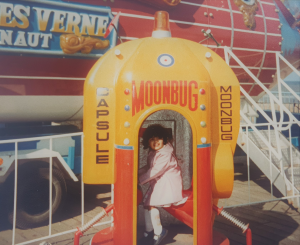Citizen Writes
Research hot topics
Dr Harjinder Sembhi: WomenInSTEM
07/05/2021

I am a remote sensing scientist and I use data collected by satellites that look down at the Earth to understand changes to our climate and environment. The measurements made by these satellites are important because they help us monitor greenhouse gases and pollution, track wildfire activity, volcanic eruptions as well as provide early warning systems for natural disasters such as floods and drought. Currently, I am responsible for several international research projects focussed on making agriculture more sustainable. By collaborating with space agencies, scientists, farmers and government organisations, I use satellite data to monitor crop yield and health, and the natural resources vital for global food security.
I took a natural interest in space from a very young age. My parents really helped feed my curiosity with lots of books about astronomy and space. Growing up, I was obsessed with NASA and loved searching for exciting things in the night sky like planets or comets. Discovering these made it all even more intriguing, and I knew I wanted a career in space science. I did a degree in Physics and Space Science and Technology at the University of Leicester and got lots of exposure to all of the different space research applications. The idea that I could use my degree to benefit life on Earth was hugely appealing to me. I decided to specialise in Earth Observation, and this led to a PhD in remote sensing.
My advice to younger students would be to pursue subjects that you enjoy and ignite your passion. Studying STEM subjects means learning many transferrable skills which can be very rewarding. Try to persevere even if it sometimes becomes challenging. If you don’t get the results you want, don’t let it get you down. Pick yourself up and try again. Remember to ask your teachers for help when you need it and find yourself a good role model if you can. I think, most importantly, try to be open-minded and take the opportunities that come your way. You never know what exciting possibilities may lie ahead.
Dr. Harjinder Sembhi
Earth Observation Science
School of Physics & Astronomy
University of Leicester